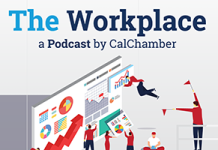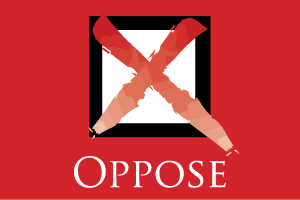In this episode of The Workplace podcast, CalChamber Executive Vice President and General Counsel Erika Frank, CalChamber Policy Advocate Ashley Hoffman, and Chris Micheli, of Aprea & Micheli, give an update on important labor and employment-related bills that employers should keep an eye on when the California Legislature returns on August 16.
What Bills Were Defeated
The CalChamber and the business community helped to defeat a number of important employment law-related bills this year, Micheli tells podcast listeners. These bills include:
- A bill that would have instituted a 10-day bereavement leave requirement, with a private right of action clause to enforce it;
- A bill that would have mandated more than $6 billion in worker bonuses;
- A bill that would have expanded the sick time employers are required to provide under the Healthy Workplaces, Healthy Families Act from 3 days to 5 days;
- An expansion of the California Fair Employment and Housing Act (FEHA) by requiring employers to accommodate any employee with family responsibilities;
- A bill that would have mandated employers to cover up to 60 hours of employees’ childcare costs each year; and
- A public shaming bill that would have required businesses to report certain metrics and data.
While these bills were stopped this year, Micheli says, they may resurface next year or at a future date.
Industry-Specific Bills
When legislators return from their summer recess, they will be considering a number of industry-specific employment law bills that may reverberate across the board.
One of these bills is CalChamber job killer bill SB 62 (Durazo; D-Los Angeles). Hoffman explains that while this bill is specific to the garment industry, it contains concerning provisions that may set a precedent for future employment law-related legislation.
The bill expands joint and several liability to any business in the garment supply chain for wage violations, even if a business has no control over the workers involved. Under the bill, even licensors could be held liable for wage claims.
Micheli points out that this bill is being watched by other industries as the Legislature has been pushing the line on joint liability farther and farther over the years.
Another important bill to know about, Hoffman says, is CalChamber job kill bill AB 616 (Stone; D-Scotts Valley). The bill affects the agricultural industry and it would essentially enact card check, eliminating secret ballot elections.
Another precedent-setting bill is AB 1074 (Lorena Gonzalez; D-San Diego). The bill expands statutory contractor-retention policies to apply to hotel service contractors. The bill will hit small businesses especially hard and is concerning to small operators like bed and breakfast-type establishments, Hoffman explains.
Workplace Safety Bills
Micheli brings attention to three bills on workplace safety that the Legislature will consider:
- CalChamber-opposed bill SB 606 (Lena Gonzalez; D-Long Beach): This bill significantly expands the California Division of Occupational Safety and Health (Cal/OSHA) authority by creating a new “egregious employer” category in the Labor Code. It also creates a new category of “enterprise-wide” citations with different abatement practices, and creates a new enforcement process. These changes, Micheli says, are significant and duplicative in some instances.
- CalChamber-opposed bill SB 410 (Leyva; D-Chino): This bill specifically exempts Cal/OSHA regulations from the Standardized Regulatory Impact Analysis (SRIA) process, which provides thorough economic analysis and Department of Finance oversight for proposed regulations.
- CalChamber-opposed AB 654 (Reyes; D-San Bernardino): A public-shaming bill, AB 654 requires the California Department of Public Health to post a list of all sites at which a COVID-19 outbreak occurs in the state. This is concerning given that employers cannot control an employee contracting COVID-19 outside of the workplace. If a sick employee comes into work and spreads COVID-19 to colleagues, then the workplace will be publicly designated as having an “outbreak,” Micheli says.
Frank adds that the bill puts employers in a challenging position as workers are most likely going to contract COVID-19 outside of the workplace, but employers will have to follow all the rules and treat the outbreak as if it happened in their establishment.
Bills on Employment Leave, Severance Agreements
The last two bills discussed on the podcast are:
- CalChamber-opposed AB 1041 (Wicks; D-Oakland): Hoffman says that employers should expect AB 1041 to pass the Legislature this year. This bill expands the California Family Rights Act (CFRA) by allowing an employee to take protected and/or paid time off to care for a “designated person” of their choice—such as a friend or roommate. The employer may limit this designated person to one person per 12-month period.
- CalChamber-opposed SB 331 (Leyva; D-Chino): This bill contains broad language and prevents employers from keeping confidential any alleged facts about unlawful activity in severance agreements. The CalChamber, Hoffman says, is pushing for amendments that would allow the severance amount in severance agreements to be kept confidential.
Key Dates to Know
In closing the podcast, Micheli highlights important dates for podcast listeners to know:
- Legislators will return from their summer break on August 16;
- Legislators have until September 10 to pass pending bills and send them to the Governor’s desk;
- When a bill lands on the Governor’s desk, the Governor has 30 days to either veto the bill or sign it into law;
- Most laws take effect on January 1, 2022, unless the bill contains an urgency clause.


